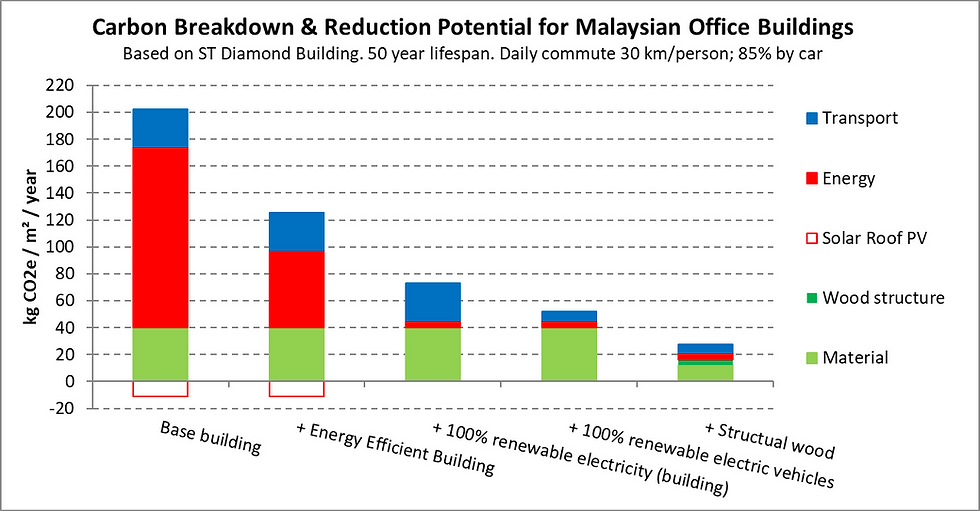Low-carbon electricity in Malaysia
- Gregers Reimann

- Feb 22, 2022
- 1 min read
The TNB power utility has announced a target to deliver zero emission electricity by 2050 to peninsular Malaysia. With this announcement, TNB follows in the footstep of European power utilities that for the past few decades have undergone significant and continuous decarbonisation, refer to graph:

The graph shows that a country like Denmark has seen a 7-fold decrease in the carbon intensity of its power supply, from 700 gram CO2/kWh in 1990 to just 105 gram CO2/kWh in 2020. This decarbonisation was initially achieved by switching from coal to natural gas power, and lately by switching away from fossil fuels to renewable energy sources. More than half of Denmark's electricity supply now comes from wind and solar. The end goal is to bring the carbon emissions down to 50 gram CO2/kWh by 2030.
In Malaysia, TNB has announced that no new coal fired power plants will be built, and that the decarbonisation of the electric power will be achieved as a combination of renewable energy as well as carbon capture and utilisation (CCU). TNB targets to deliver electricity with 500 gram CO2/kWh by 2035 and deliver emission free electricity by 2050, aka 0 gram CO2/kWh. See video released by TNB in January 2022:
Play video: https://youtu.be/dTijsUGqlto
In our recent article "Carbon Reduction for Buildings", we outline how low-carbon electricity will also help to decarbonise the building sector and how lowering the carbon footprint of building materials themselves becomes the next big challenge ensure full decarbonisation of the building sector. Read article below:
The article was published in the @Green magazine, January-February 2022 issue, page 21. The entire @Green magazine can be read online here: https://joom.ag/hwid





Comments